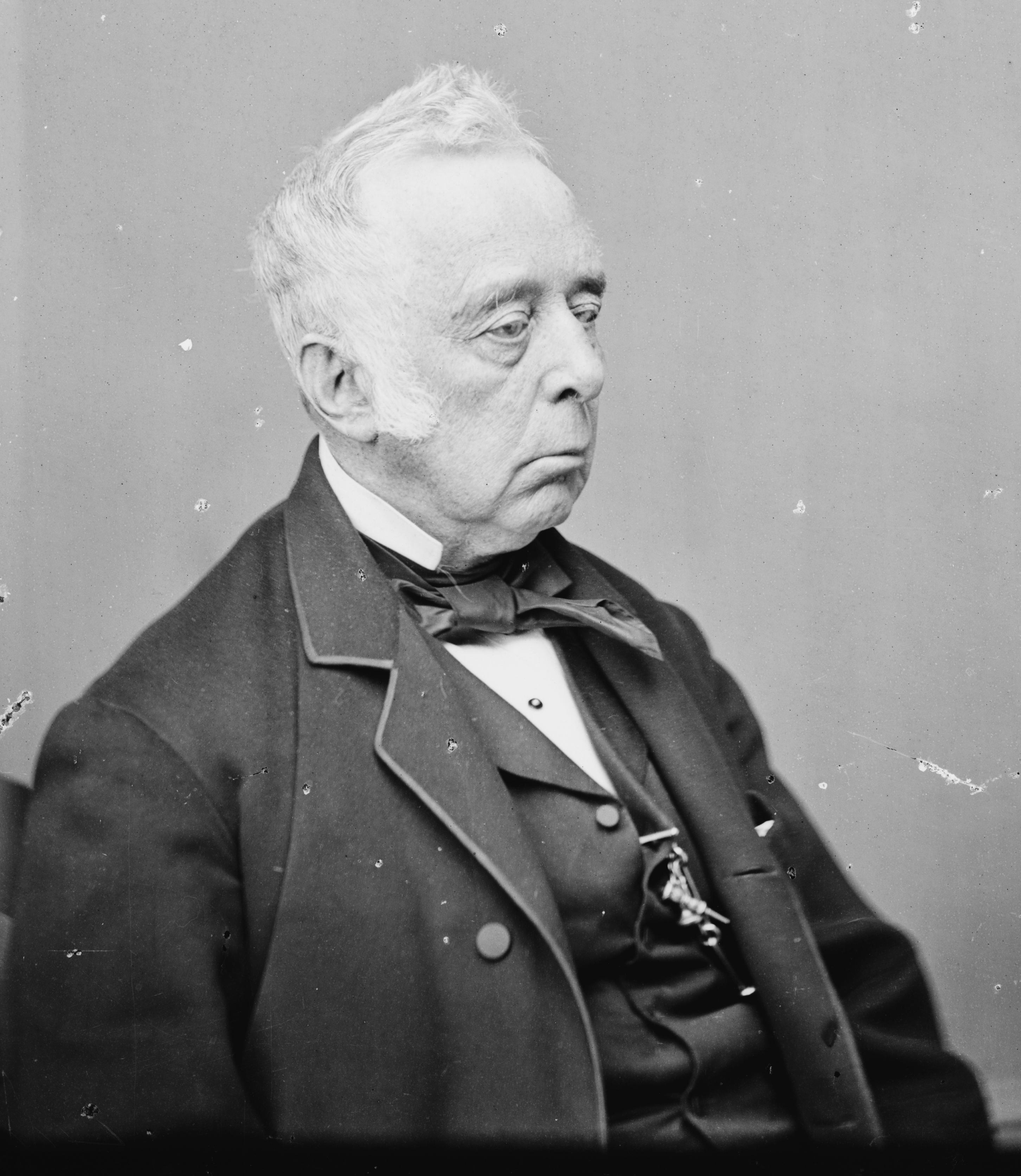- Reverdy Johnson
Infobox US Cabinet official
name=Reverdy Johnson

order=22nd
title=United States Attorney General
term_start=March 8 ,1849
term_end=July 21 ,1850
predecessor=Isaac Toucey
successor=John J. Crittenden
birth_date=birth date|1796|5|21|mf=y
birth_place=Annapolis, Maryland , U.S.
death_date=death date and age|1876|2|10|1796|5|21
death_place=Annapolis, Maryland , U.S.
party=Whig, Democrat
spouse=Mary M. Johnson
profession=Lawyer ,Politician Reverdy Johnson (
May 21 ,1796 –February 10 ,1876 ) was a statesman and jurist fromMaryland .Early life
Born in
Annapolis , Johnson was the son of a distinguishedMaryland lawyer and politician, John Johnson (1770 - 1824). He graduated from St. John's College in 1812 and then studied law. He was admitted to the bar in 1815, and then moved toBaltimore , where he became a legal colleague ofLuther Martin ,William Pinkney andRoger B. Taney . From 1821 until 1825 he served in theMaryland State Senate and then returned to practice law for two decades.Federal politics
From 1845 to 1849, he represented Maryland in the
United States Senate as a Whig, and from March 1849 until July 1850 he wasAttorney General of the United States under PresidentZachary Taylor . He resigned that position whenMillard Fillmore took office.A conservative Democrat, he supported
Stephen A. Douglas in the presidential election of 1856. He represented the slave-owningdefendant in the infamous 1857 case "Dred Scott v. Sandford ". Personally opposed to slavery and was a key figure in the effort to keep Maryland from seceding from the Union during theAmerican Civil War .He served as a Maryland delegate to the
Peace Convention of 1861 and from 1861 to 1862 served in theMaryland House of Delegates . During this time he represented Maj. Gen.Fitz John Porter at his court-martial, arguing that Porter's distinguished record of service ought to put him beyond question. The officers on the court-martial, all handpicked bySecretary of War Edwin Stanton , voted to convict Porter of cowardice and disobedience.After the capture of
New Orleans , he was commissioned by PresidentAbraham Lincoln to revise the decisions of the military commandant,General Benjamin F. Butler, in regard to foreign governments, and reversed all those decisions to the entire satisfaction of the administration. After the war, representing the riven points of view held by his fellow statesmen, Johnson argued for a gentler Reconstruction effort than that advocated by the Radical Republicans.In 1863 he again took a seat in the United States Senate, serving through 1868. In 1865, he defended
Mary Surratt before a military tribunal. Surratt was convicted and executed for plotting and aiding Lincoln's assassination. In 1866, he was a delegate to theNational Union Convention which attempted to build support for President Johnson. Senator Johnson's report on the proceedings of the convention was entered into the record of President Johnson's impeachment trial. In 1868 he was appointed minister to the United Kingdom and soon after his arrival in England negotiated theJohnson-Clarendon Treaty for the settlement of disputes arising out of the Civil War; this, however, the Senate refused to ratify, and he returned home on the accession of GeneralUlysses S. Grant to the presidency. Again resuming his legal practice, he was engaged by the government in the prosecution of cases against theKu Klux Klan as well as work compiling the reports of the decisions of theMaryland Court of Appeals .In 1876, he fell from a balcony at the Governor's Mansion in Annapolis and was killed instantly. He is buried in
Greenmount Cemetery at Baltimore. Johnson had been the last surviving member of the Taylor Cabinet.Further reading
*Steiner, Bernard C., "Life of Reverdy Johnson", New Library Press.Net. ISBN 0-7950-2452-5
References and external links
*CongBio|J000169
*
* [http://www.findagrave.com/cgi-bin/fg.cgi?page=gr&GRid=6857508 Reverdy Johnson at Find-A-Grave]
Wikimedia Foundation. 2010.
